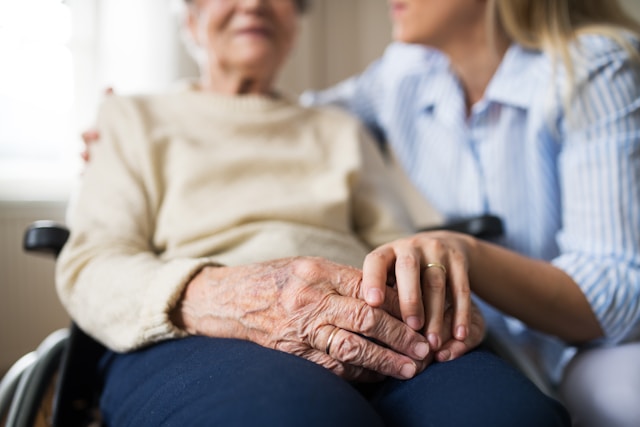
Gerontologist roles center on advancing the science of aging and translating discoveries into practical solutions. As populations grow older worldwide, demand surges for experts who can address physical, mental, and social challenges faced by older adults. A gerontologist studies age-related changes in anatomy, cognition, and behavior, then applies that knowledge to develop interventions promoting longevity and life quality. Importantly, gerontologist roles bridge laboratory research with community outreach: they design studies on chronic disease prevention, analyze survey data on seniors’ wellness, and create educational workshops for caregivers. By synthesizing findings into guidelines, gerontologists ensure health professionals and families understand best practices in aging care.
Furthermore, gerontologist roles involve advocacy. Specialists collaborate with senior centers, non-profits, and government agencies to raise awareness of age-friendly policies. Consequently, they highlight the need for accessible public spaces, affordable housing, and comprehensive insurance coverage. Through public talks and published reports, gerontologists shape societal attitudes toward aging, combat stigma, and promote intergenerational solidarity. Ultimately, their multifaceted work underlines why gerontologist roles are vital for building resilient, inclusive communities that honor older adults’ contributions.
Key Gerontologist Roles in Practice
In clinical and community settings, gerontologist roles translate theory into action. Initially, specialists perform comprehensive assessments evaluating seniors’ mobility, cognitive function, and emotional wellness. Following these evaluations, gerontologist roles extend to designing personalized care plans that integrate physical therapy, memory training, and social engagement activities. For example, a gerontologist might coordinate a fall-prevention program at a local senior center, combining strength exercises with home-safety audits. Meanwhile, in hospital environments, they consult with multidisciplinary teams—physicians, nurses, physical therapists—to optimize discharge plans and reduce readmission rates among older patients.
Moreover, gerontologist roles include training caregivers. Whether working with family members or professional aides, gerontologists deliver workshops on effective communication, safe transfer techniques, and behavioral management strategies. By empowering caregivers, they alleviate stress and improve the quality of care. Additionally, gerontologists contribute to community health by organizing outreach events that educate older adults on nutrition, medication adherence, and chronic disease self-management. Through these initiatives, gerontologist roles foster preventive approaches, shifting focus from reactive treatments to long-term wellness.
Interdisciplinary Gerontologist Roles
Gerontologist roles thrive on collaboration across diverse fields. For instance, urban planners enlist gerontologists to design age-friendly neighborhoods featuring curb-cut ramps, non-slip pavements, and accessible green spaces. In academia, gerontologists partner with sociologists and psychologists to study social isolation’s impact on seniors’ mental health. These interdisciplinary gerontologist roles generate comprehensive insights that guide policy reforms, such as expanding telehealth services or adjusting pension schemes to combat financial insecurity.
Likewise, technology developers leverage gerontologist roles to create user-centered innovations. By advising on interface design, gerontologists ensure mobile health apps and wearable sensors cater to older adults’ visual, motor, and cognitive needs. As a result, emerging tools—like remote patient monitoring systems—become more intuitive and acceptable for seniors. Furthermore, in legal and ethical domains, gerontologist roles support guardianship assessments, advance care planning, and elder rights advocacy. They provide expert testimony on capacity evaluations and contribute to drafting regulations that protect vulnerable older adults from abuse and neglect.
Future Gerontologist Roles and Trends
Looking ahead, gerontologist roles will increasingly harness digital technologies and precision medicine. Telegerontology—remote consultations and virtual therapy sessions—allows specialists to reach homebound seniors in rural or underserved regions. Meanwhile, big data analytics and artificial intelligence enable gerontologists to predict individual risk profiles for dementia, cardiovascular disease, and falls. Consequently, preventive interventions can be tailored more accurately, maximizing benefits while minimizing side effects. In addition, gerontologist roles will evolve to include genetic counseling for age-associated conditions, guiding families through ethical considerations and personalized prevention strategies.
In parallel, cultural shifts toward “active aging” expand gerontologist roles beyond healthcare. Encouraging lifelong learning, volunteerism, and intergenerational mentorship, gerontologists help older adults maintain purpose and community engagement. Innovative housing models—such as co-living arrangements where college students and seniors share space—emerge from gerontological research advocating mutual support and reduced loneliness. Ultimately, as longevity increases, gerontologist roles will be pivotal in redefining aging as a dynamic, fulfilling life stage rather than a period of inevitable decline.